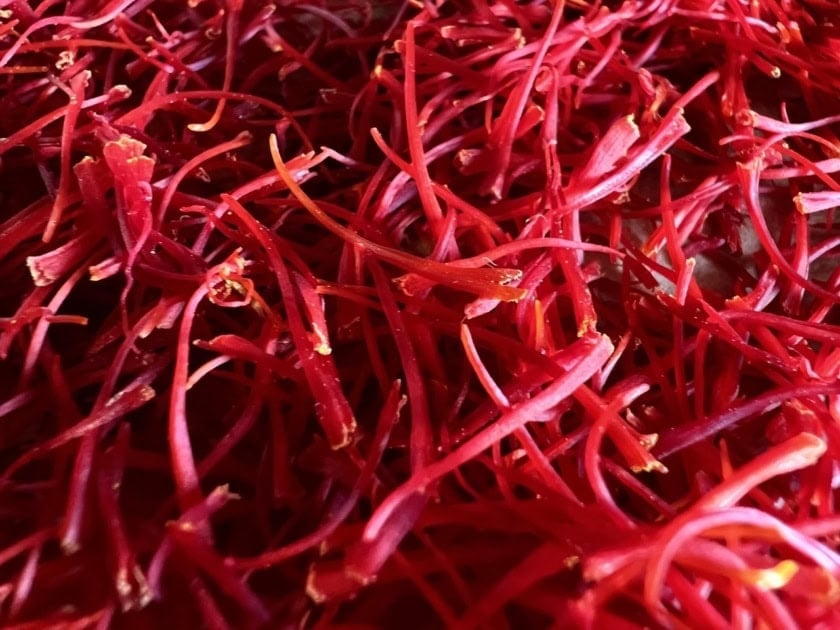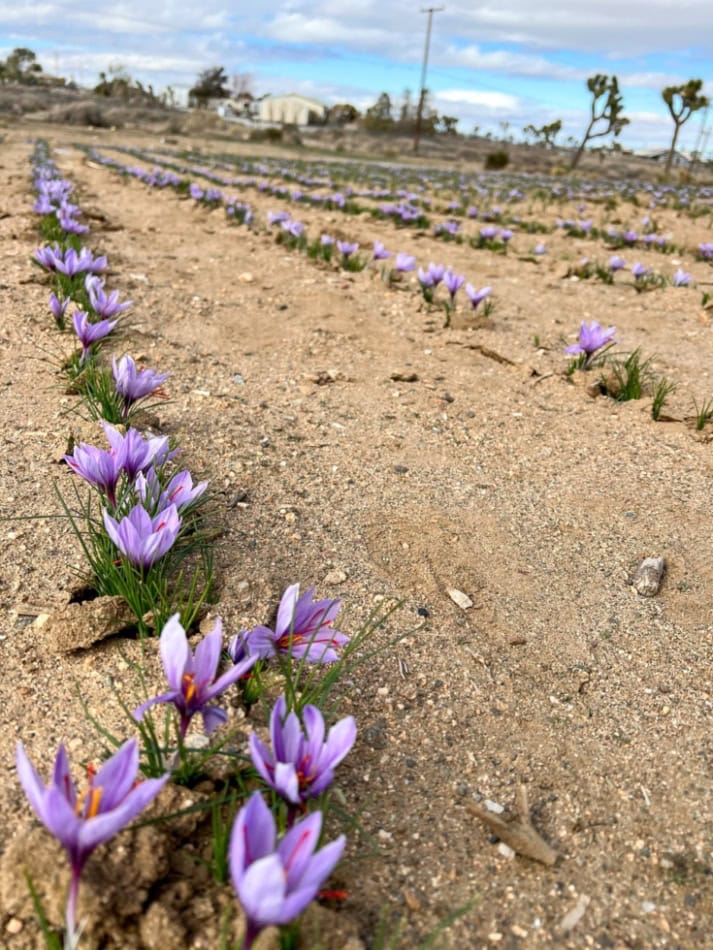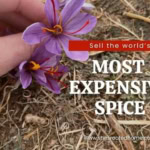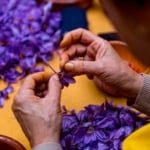Grow Saffron – The World’s Most Expensive Spice in Your Garden

Saffron is a beautiful spice that brings flavor to countless dishes and recipes. But did you know that you can grow your own saffron? In the world of gardening, there’s a hidden treasure waiting to be discovered – saffron, the most valuable spice in the world.
Luxurious Appeal of Saffron
Saffron’s culinary expertise is legendary, with its alluring aroma and distinctive flavor elevating dishes to celestial heights. A pinch of these golden threads transforms a simple rice dish into a luxurious saffron-infused paella or imparts an unparalleled richness to creamy saffron-infused desserts. As a gardener, growing your own saffron allows you to savor the unparalleled joy of indulging in culinary creations that bear the fruits of your labor.
Beyond its culinary charm, saffron has been revered for its medicinal properties for centuries. This treasure trove of antioxidants and bioactive compounds offers a range of health benefits, including mood enhancement, stress reduction, and improved sleep quality. By growing saffron in your garden, you not only nurture your culinary desires but also promote wellness and holistic living.
Growing Saffron
Cultivating saffron presents an alluring adventure that sparks joy at every stage. Planting the Crocus Sativus bulbs in the fall sets the stage for months of anticipation, culminating in the breathtaking sight of saffron flowers blooming in autumn. The joy of carefully hand-harvesting the precious crimson stigmas creates a profound sense of accomplishment.
Saffron is surprisingly adaptable and low maintenance, making it a perfect choice for gardeners of all levels. Its small space requirements allow it to thrive in containers, beds, or small garden patches, making it accessible for urban gardeners too.
In an age of growing environmental consciousness, cultivating saffron aligns beautifully with eco-friendly gardening practices. The plant is resilient and requires minimal water, promoting water conservation. Additionally, saffron cultivation does not rely on harmful chemicals or pesticides, contributing to a healthier and more sustainable garden.
Additionally, saffron is beneficial to pollinators due to its vibrant purple flowers, which attracts bees, butterflies, and other insects, facilitating cross-pollination and promoting biodiversity in the ecosystem. The nectar-rich blooms serve as a valuable food source for these pollinators, supporting their populations and overall health. It benefits pollinators due to its vibrant purple flowers, attracting bees, butterflies, and other insects, promoting biodiversity in the ecosystem.
Apart from its intrinsic value as a culinary and medicinal treasure, saffron offers an enticing financial aspect to gardeners. As the world’s most expensive spice, the yield from a small saffron garden can command impressive returns, providing a unique opportunity to enjoy both natural and financial rewards. By growing saffron yourself, you can also avoid the high retail markups and potentially produce a substantial amount of the spice for personal use, leading to significant cost savings over time.
Growing Saffron: Tips for Success

To ensure a successful saffron cultivation, consider the following tips:
Choose a sunny location with well-draining soil. Saffron thrives in a Mediterranean climate, but it can adapt to various environments, from zones 4-10.
Plant saffron bulbs in late summer or early fall, placing them about 4 to 6 inches apart and 3 to 6 inches deep. Water the bulbs regularly during the growing season, but avoid overwatering to prevent bulb rot.
Saffron flowers bloom in the fall, and the harvesting season follows closely. Be patient during the blooming period, and carefully hand-harvest the delicate crimson threads. Precise handling preserves the quality and value of the saffron stigmas.
The appeal of saffron is not merely limited to its high price tag but extends to its rich history and culinary charm. As gardeners, growing saffron offers a delightful and rewarding experience that connects us with the ancient world while embracing the future of sustainable and luxury gardening. So, seize the opportunity to cultivate the world’s most expensive spice in your garden and witness the golden threads of saffron blossoming before your very eyes.
What is Saffron?
Saffron is the bright red stigma of the flower Sativus Crocus. The three saffron threads are removed from the flower and dried. The Flower is planted, harvested, and processed by hand. Making it the world’s most expensive spice. Saffron makes a healthy spice and is used to add color & flavor to many dishes- soups, seafood, rice, chicken, pastries, desert, butter, cheese, and so on.
Grow Your Own
Shop Now and start growing the world’s most expensive spice in your backyard garden. We are quickly approaching the short planting window for saffron (Sativus Crocus). One amazing benefit to planting Sativus Crocus is that you get an immediate harvest. Unlike most bulbs that require you wait until the following growing season or next year for your first harvest. Saffron is typically planted between August-October and harvested October-December.
This story contains product affiliate links. We may receive a commission if you make a purchase after clicking on one of these links.
Chad Philipp
Connect with Chad and Tara Philipp of She’s Rooted Home Saffron Farm, located in the Southern California Mojave Desert. She’s Rooted Home is one of the largest saffron farms in the USA.
Recognizing their Southern California desert homestead had a similar climate to Iran, the world's largest producer of saffron, Chad and Tara planted over 55K corms and harvested well over 100 grams of saffron their first year. Saffron corms take up very little space and don’t require much water or nutrition. It’s an easy plant to care for, making it a perfect addition to the kitchen garden. Chad and Tara want to educate homemakers on cooking from scratch, including the uses + benefits of herbs and spices. Helping us regain confidence & understanding of herbs & spices in the home kitchen.






Hi, I have Suffron and it is the world’s best Suffron
I’m game. I love the outdoors, planting seeds and flowers. Saffron sounds interesting. Speak more on the subject and photos.
Hi DeLaine,
Please visit our partners Chad and Tara at the referenced site for more saffron information.
Thank you, I learned of saffron many years ago when I moved to Pa. This is one of the secret ingredients when I make my rice, looking forward to growing my own. Thank you so much for the article.
Are the bulbs organic?
What is the cost of 6 bulbs?
Where can I buy the plants in kzn south Africa